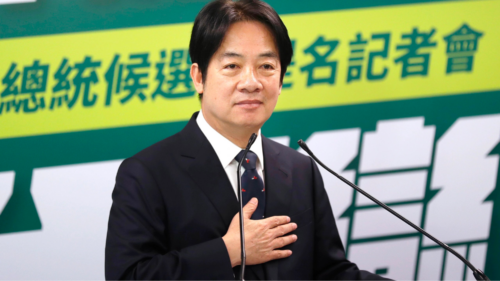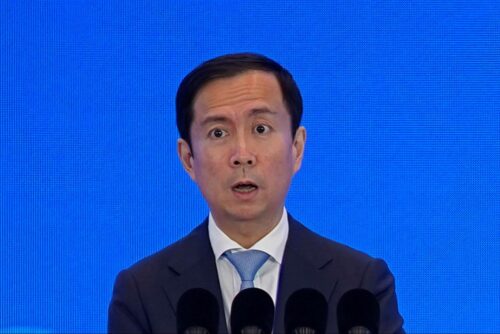Trump expected to sign bill that could end in delisting of Alibaba and others
Today from the U.S. government: the Holding Foreign Companies Accountable Act, new sanctions against cotton products from Xinjiang, and visa limits for Chinese Communist Party members.

Various parts of the U.S. government continue to target Chinese companies, government organizations, and individuals. Here is today’s news:
Trump expected to sign bill requiring audits of Chinese companies
U.S. President Donald Trump is expected to sign the Holding Foreign Companies Accountable Act, which passed the House of Representatives last night. If he signs the bill, some Chinese companies could be delisted from U.S. markets and others fail to qualify unless they meet U.S. auditing standards.
- State-run Chinese TV network CGTN called the passage of the bill a “new high in U.S. anti-China hysteria.”
- The Securities and Exchange Commission (SEC) has been working on a similar proposal that the Wall Street Journal reported in November would put the responsibility on stock exchanges to require audit inspection compliance from companies based in foreign countries.
American regulators are currently hindered from inspecting Chinese accounting firms, with the Chinese government citing national security concerns. The law would force Chinese companies and their local auditors to completely open up their books or face delisting or denial of approval to list.
What does this mean for investors?
All Chinese companies listed in the U.S. could be affected. Reuters name-checks tech firms such as Alibaba and Pinduoduo, as well as state-controlled oil giant PetroChina. “The bill could have the broadest impact on investors’ portfolios — though the logistics to implement the measures likely means the fallout won’t be sudden or as drastic as it may sound,” says Barron’s, citing two main reasons:
- “The bill won’t come as a surprise to investors. Emerging market fund managers have been swapping U.S. listings of widely held stocks like Alibaba, JD.com, and NetEase for their secondary listings in Hong Kong listings for months, in anticipation of the measure.”
- “The three-year time horizon creates a framework for the U.S. and China to negotiate. They will have three years to develop an off-ramp for companies that can’t meet compliance,” said Patrick Chovanec, an economic adviser at Silvercrest Asset Management.
Xinjiang cotton sanctions
Yesterday, the Trump administration also announced that U.S. Customs and Border Protection will detain shipments containing cotton and cotton products originating from the Xinjiang Production and Construction Corps, the military-owned industrial and agricultural conglomerate that reportedly uses forced Uyghur labor.
- “This is the sixth recent order blocking such products from China’s Xinjiang region and marks an escalation in the scope of the restrictions,” according to CNN, which notes that the U.S. issued an advisory in June this year “warning businesses about the risks of forced labor in Xinjiang, where the ‘Chinese government continues to execute a campaign of repression targeting the Uyghur people and other ethnic and religious minority groups.’”
- Xinjiang Production and Construction Corps is far from the only company involved in coercive practices in Xinjiang: As Bloomberg puts it, “the stench of forced labor taints big brands,” including Nike, Coca-Cola, and Calvin Klein.
Visa troubles for Chinese Communist Party members
The Trump administration yesterday issued new rules that limit the maximum duration of travel visas for Chinese Communist Party (CPC) members and their families to one month.
- Until now, Party members were able to obtain U.S. visitor visas that were valid for up to 10 years, like all Chinese citizens, under a reciprocal policy that began in 2014.
- In response, the Chinese Foreign Ministry urged (English, Chinese) the U.S. government to give up its “hatred and distorted sentiments toward the CPC.”






